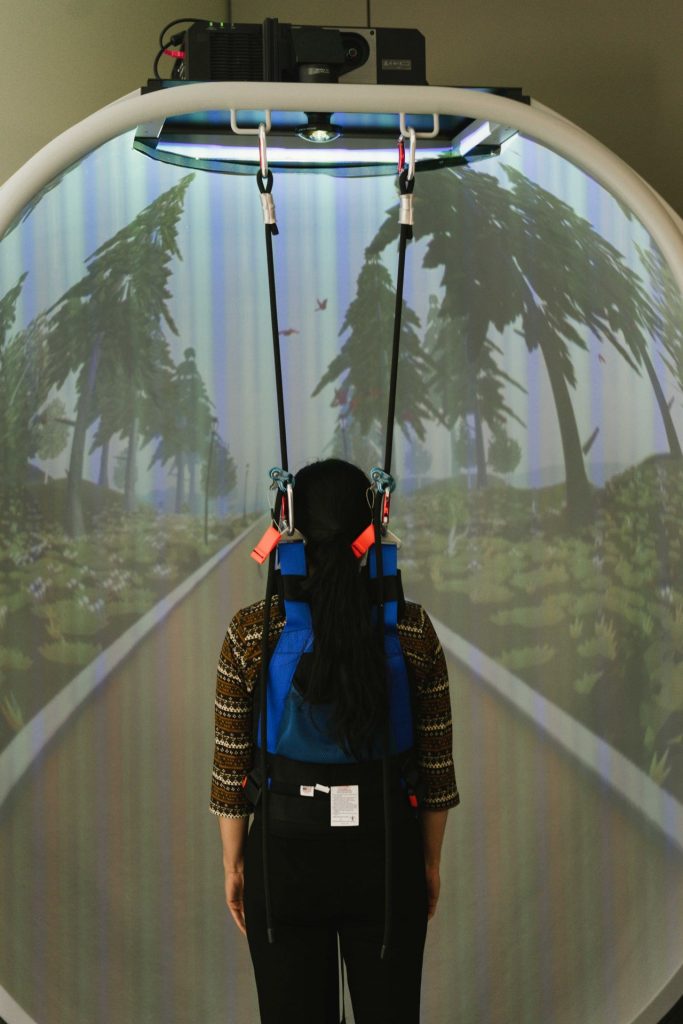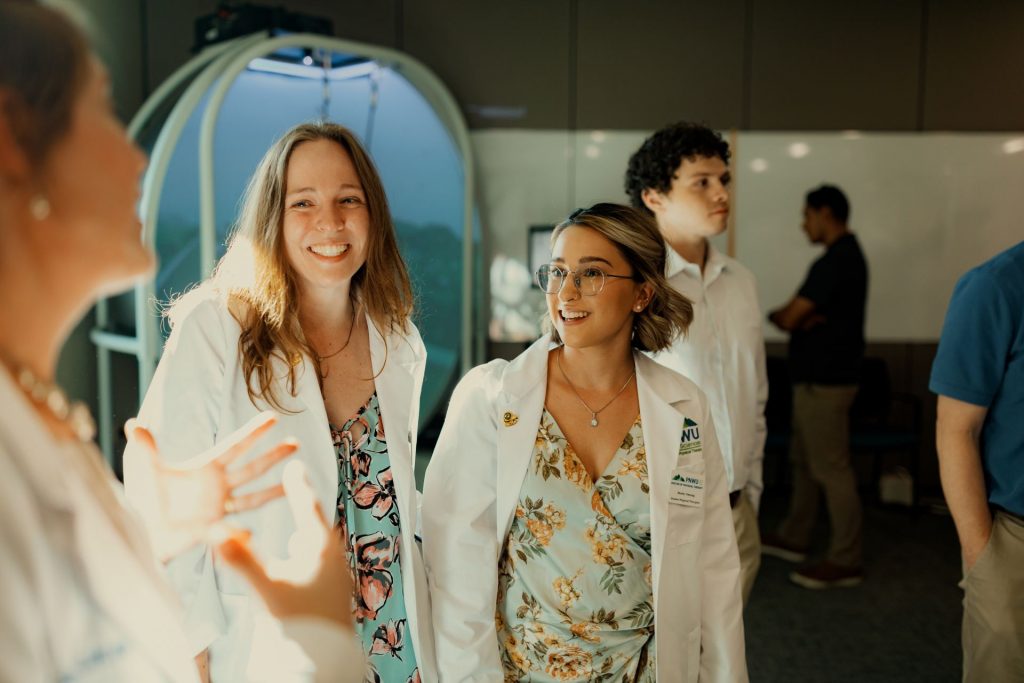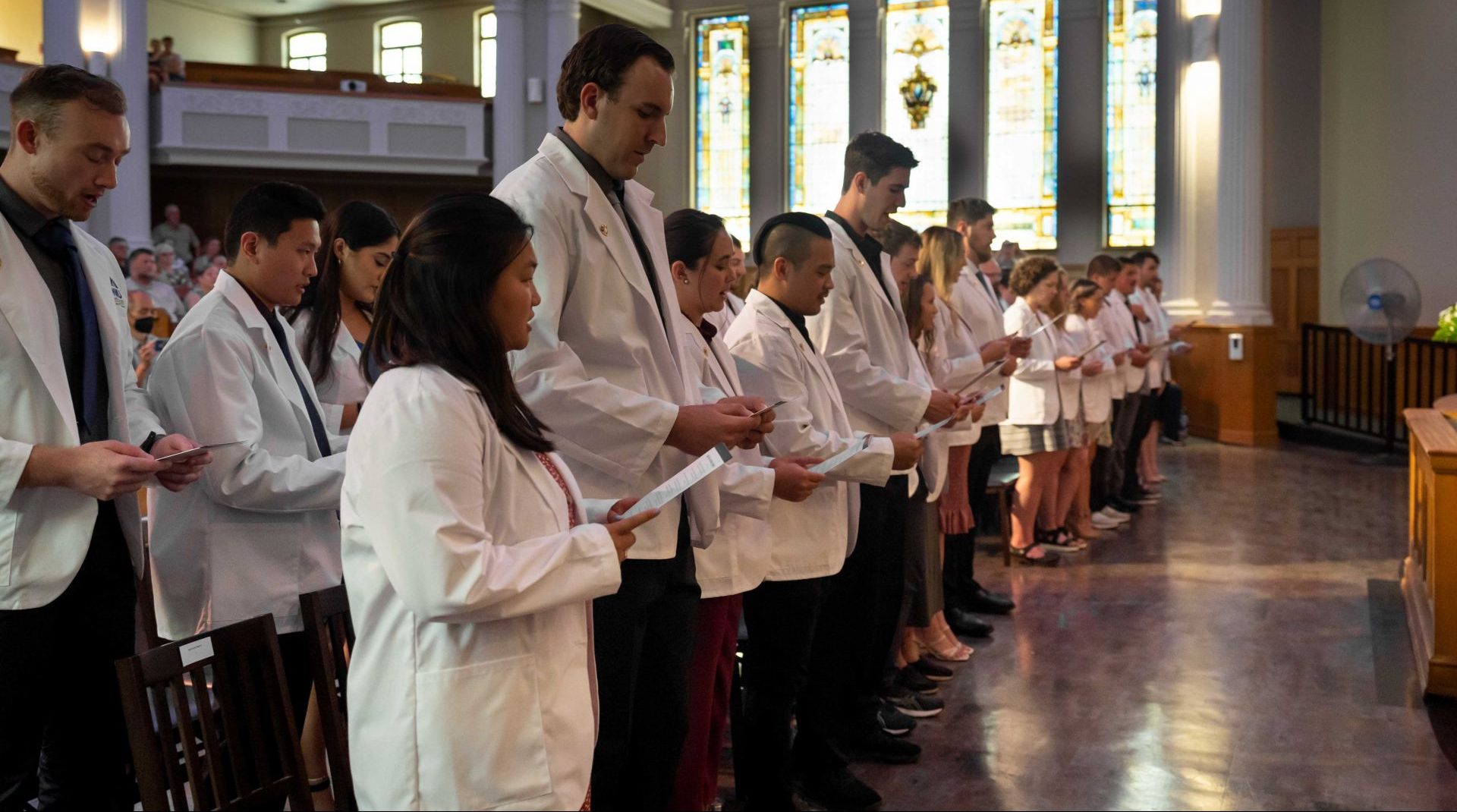PNWU’s inaugural class of 34 Doctor of Physical Therapy (DPT) students joins over 600 current PNWU health sciences students in the singular mission of improving care in rural and medically underserved communities throughout the Pacific Northwest.
(YAKIMA, WA) – On Wednesday, August 10, 2022, from 3-4 p.m., Pacific Northwest University (PNWU) hosted the first ever PNWU Doctor of Physical Therapy White Coat Ceremony, live from Yakima’s Seasons Performance Hall. The ceremony recognized PNWU’s inaugural class of 34 Doctor of Physical Therapy (DPT) students, who begin their studies on the non-profit university’s Yakima-based health sciences campus this month.



The three-year doctorate program aims to educate the next generation of physical therapists as movement experts, leaning on a curriculum designed to emphasize practice in rural and medically underserved communities. PNWU’s addition of a School of Physical Therapy (SOPT) aims to bolster the university’s mission of educating and training health care workers to deliver quality care to patients in those very communities.
“Our SOPT students will learn problem-solving and critical thinking skills which apply directly to the challenges facing patients throughout the Pacific Northwest,” explained Dr. Peggy Trueblood, Founding Director of the SOPT.
The SOPT’s curriculum emphasizes a rural-focused curriculum consisting of didactics, labs, simulated experiential learning, full-time clinical experiences, community-based service-learning projects, and a culminating capstone project. PNWU DPT students will complete coursework in movement and behavioral sciences, professional and interprofessional practice, evidence-informed practice, clinical reasoning, and patient management, including for special populations. They will also develop a strong moral foundation and soft skills necessary for PT practice including social and emotional intelligence, cultural competencies, and understanding social determinants of health. Evidence-informed principles and clinical decision-making skills will be applied in professional practice courses and integrated clinical experiences in various health settings. PNWU DPT students will also have an opportunity to learn and participate in community-based research with faculty in PNWU’s new Haney Family Center for Applied Movement Science (CAMS) laboratory.



Additionally, the new program practices a holistic approach to admissions, which recognizes that students come from different backgrounds, life experiences, and have had different access to educational and other opportunities. Nearly 60% of PNWU’s DPT students are from the Northwest, and nearly a quarter come from Medically Underserved Areas (MUAs). “We intentionally target applicants from the Northwest who are from rural and medically underserved communities or have a passion to serve these communities,” Dr. Trueblood explained.
PNWU’s SOPT will partner with numerous hospitals, clinics, and health agencies in the five-state Northwest region (Washington, Alaska, Idaho, Oregon, and Montana) to provide students with clinical experiences, as well as regional graduate health science programs to provide a cross-discipline interprofessional learning environment. Partners include Heritage University (Nursing), Whatcom Community College (Physical Therapy Assistants), and Washington State University (Nursing and Pharmacy), working with medical students from PNWU’s nationally-ranked College of Osteopathic Medicine (COM).

Employment of PTs is projected to grow 21% from 2020-2030, and there are currently 34% fewer physical therapists per patient in rural America, according to the U.S. Department of Health and Human Services. “This is an excellent time to enter the profession of physical therapy, and a great time to be at PNWU,” said Dr. Trueblood.
PNWU’s mission-driven PT program is currently accepting applications to join its Class of 2026, which is slated to train alongside health sciences students in PNWU’s COM, Master of Arts in Medical Sciences (MAMS) program, and the inaugural School of Occupational Therapy class.
